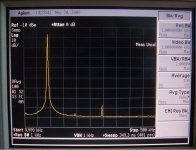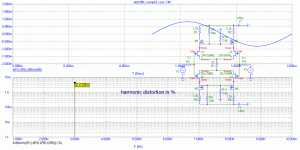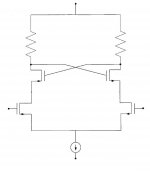I measured picked up HF noise on many cables. There is a big difference, and I have always considered change of sound as a result of different level and spectrum of picked up HF noise.
I have always considered difference in HF noise as a result of cable construction (geometry etc.) and dielectricum used, not 'superior SuperMonocrystal™ and Monocrystal™ copper (and silver) products' properties. Maybe I was wrong? 😉
I have always considered difference in HF noise as a result of cable construction (geometry etc.) and dielectricum used, not 'superior SuperMonocrystal™ and Monocrystal™ copper (and silver) products' properties. Maybe I was wrong? 😉
syn08 said:sneak into your wallet.
Xmas offer: buy a US4xs stereo set and get a Prada handbag for free.
Andre Visser said:
Thanks! I cried!



Even though it was very hard to cry so inaudible for my sleeping family...
🙄
PMA said:I measured picked up HF noise on many cables. There is a big difference, and I have always considered change of sound as a result of different level and spectrum of picked up HF noise.
I have always considered difference in HF noise as a result of cable construction (geometry etc.) and dielectricum used, not 'superior SuperMonocrystal" and Monocrystal" copper (and silver) products' properties. Maybe I was wrong? 😉
Hi PMA,
If HF noise picked up by cables has an influence on sound (I think it can), audio electronics should be made immune to it and some recipes applied to avoid its bad effects :
http://uk.geocities.com/cyrilb2@btinternet.com/download/measure_cables.pdf
Surely I know. Sometimes it is easier to say than to realize, and many designs go contrary to HF immunity rules.
syn08 said:And here (about oxygen in copper):
http://www.diyaudio.com/forums/showthread.php?s=&postid=1583559&highlight=#post1583559
bear said:Anyhow, what about those component leads?
Lessee:
copper
tinned copper
silver plated copper
gold plated copper
cadnium plated?
rhodium?
and the above with steel, brass, etc??
solid silver, gold, etc...
--------------------
PS. glad someone mentioned that pesky "screen" wire in "directional cables"...
Douglas Self the prominent audio amplifier designer, the author of several books in Audio Amplifier making,
has done a severe testing project on Oxygene Free audio system:
PROJECT 8: THE OXYGEN-FREE LISTENING ROOM.
If oxygen-free copper is a good thing, then clearly oxygen is a bad thing for audio. The largest quantity of oxygen the sound is likely to encounter is in its passage through the air from loudspeakers to listeners.
The only way to address this is:
The Oxygen-Free Listening Room, which is filled with pure nitrogen.
😀 😀 😀 😀


Here an image of some of the test personel in action, listening:
An externally hosted image should be here but it was not working when we last tested it.
Websource:
Mister Douglas Self - Projects related to Audio & Electronics
janneman said:.........But of course. Nobody doubts that. Is that news for you?
Jan Didden
I could be mistaken but I get the feeling that some here believe that their ears are sensitive enough to hear any alteration to an audio signal.
The fact is, human hearing has limits, and there are real (measurable) differences in audio signals that no one can hear.
To get a better sound, knowing what you can't hear could be just as important as knowing what you can hear.
Niobium cables?
Anyone ever tried superconductors for interconnects? Seems these could serve as a reference since the cooper-pair conduction mechanism could circumvent all of JC's residual resistance effects.
http://www.iop.org/EJ/article/1742-...quest-id=5ec73f5a-ebc9-4d38-b6ed-5018ab83ac22
Maybe even develop an amplification stage based on this:

cost might be somewhat of a factor, though...😉 😉
John L.
Anyone ever tried superconductors for interconnects? Seems these could serve as a reference since the cooper-pair conduction mechanism could circumvent all of JC's residual resistance effects.
http://www.iop.org/EJ/article/1742-...quest-id=5ec73f5a-ebc9-4d38-b6ed-5018ab83ac22
Maybe even develop an amplification stage based on this:

cost might be somewhat of a factor, though...😉 😉
John L.
PMA said:I measured picked up HF noise on many cables. There is a big difference, and I have always considered change of sound as a result of different level and spectrum of picked up HF noise.
I have always considered difference in HF noise as a result of cable construction (geometry etc.) and dielectricum used, not 'superior SuperMonocrystal" and Monocrystal" copper (and silver) products' properties. Maybe I was wrong? 😉
Yes, again file EMI & RFI pickup/sensitivity in factors not usually considered. One interconnect could "outperform" another based on this alone wrongly attributed to some other magikal property.
PMA said:I measured picked up HF noise on many cables. There is a big difference, and I have always considered change of sound as a result of different level and spectrum of picked up HF noise.
I have always considered difference in HF noise as a result of cable construction (geometry etc.) and dielectricum used, not 'superior SuperMonocrystal" and Monocrystal" copper (and silver) products' properties. Maybe I was wrong? 😉
I have compared their speaker cable, OFC vs Monocrystal vs Supermonocrystal and you can clearly hear an improvement in SQ with each step.
PMA said:Which high rated audio product has Douglas Self designed?
Professional mixing consoles for Harman-Soundcraft?
Sure.fredex said:
I could be mistaken but I get the feeling that some here believe that their ears are sensitive enough to hear any alteration to an audio signal.
The fact is, human hearing has limits, and there are real (measurable) differences in audio signals that no one can hear.
To get a better sound, knowing what you can't hear could be just as important as knowing what you can hear.
But there are audible sounds which ou can hear, but may not realise it.
Some 'study' may have told you it is not audible, and you believed it.
It's like hearing below 0.1Hz
Most will say it can't be done. Yet many do hear that low.
They even make earplugs to reduce the loudness.
PMA said:Or mercury - no domain boundaries.
Yes, and it is used in relays and switches where domain boundaries play their role. It could help Parasound to be more reliable.
- Status
- Not open for further replies.
- Home
- Amplifiers
- Solid State
- John Curl's Blowtorch preamplifier


